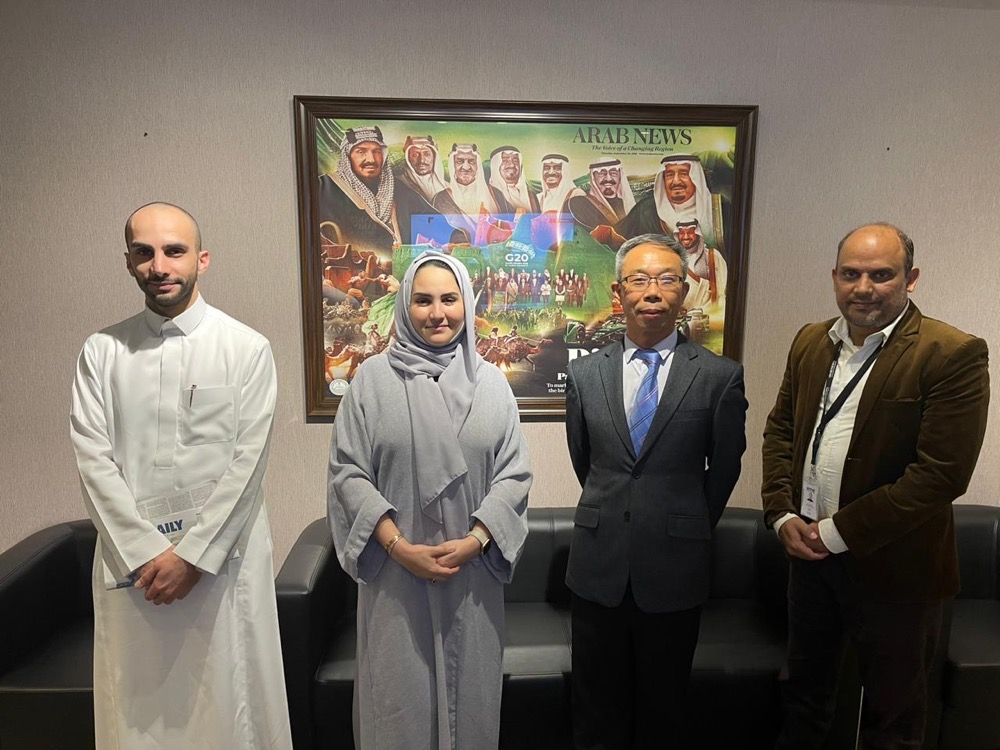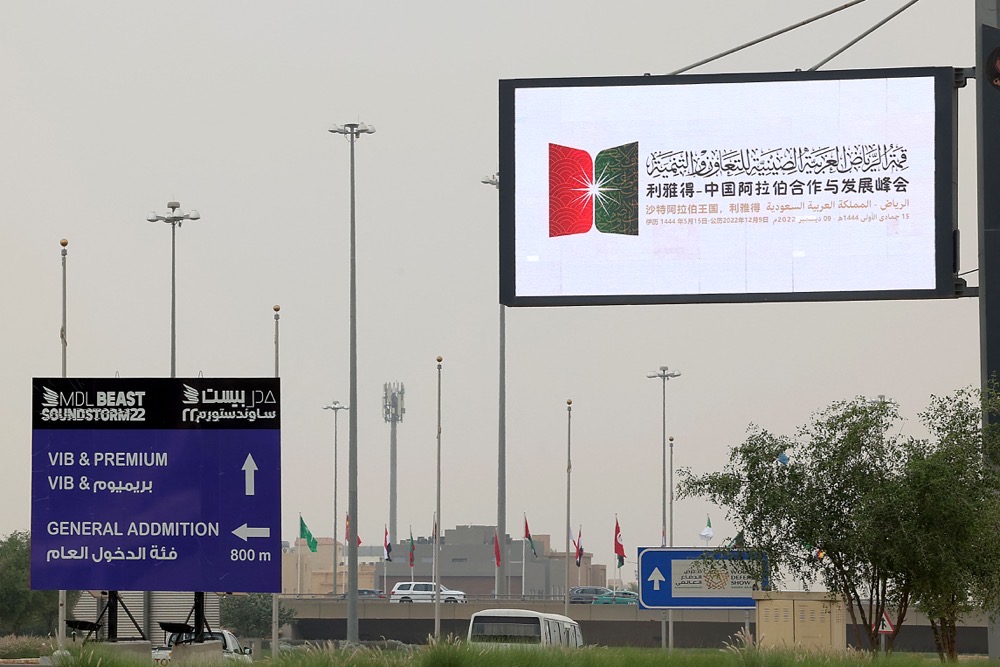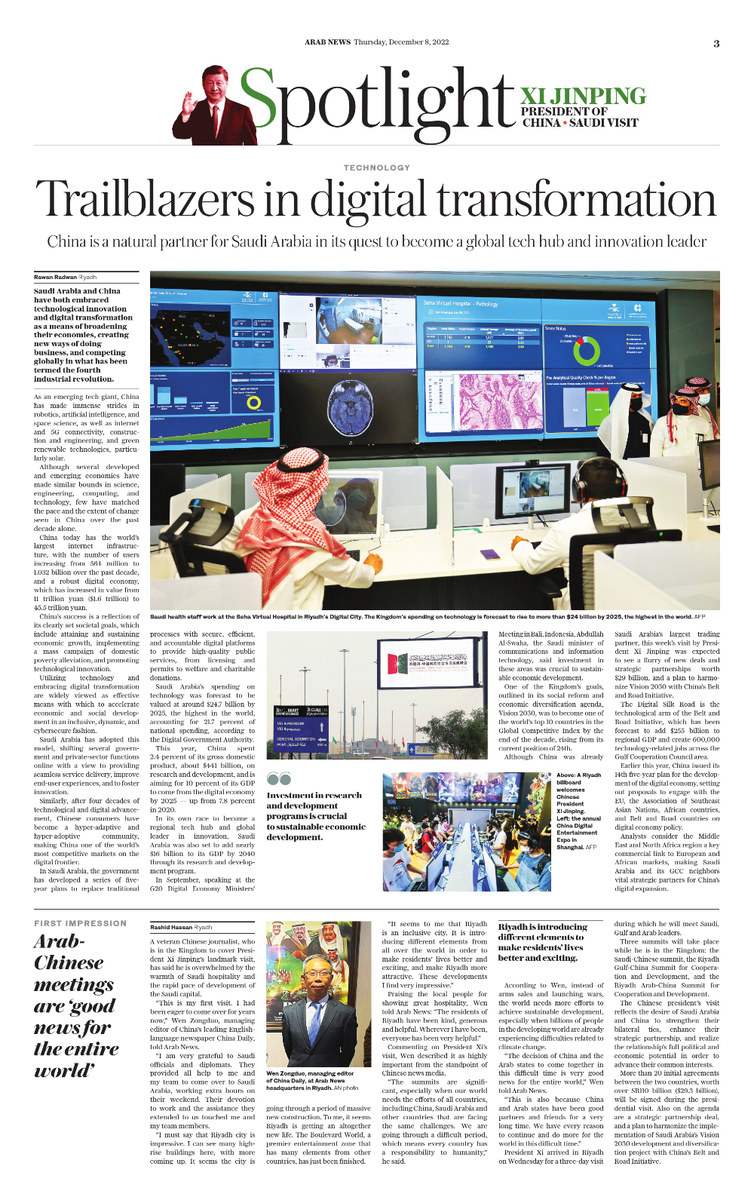RIYADH: A veteran Chinese journalist, who is in the Kingdom to cover President Xi Jinping’s landmark visit, says he is overwhelmed by the warmth of Saudi hospitality and the rapid pace of development of the Saudi capital.
“This is my first visit. I had been eager to come over for years now,” Wen Zongduo, managing editor of China’s leading English-language newspaper China Daily Asia Pacifc, told Arab News.
“I am very grateful to Saudi officials and diplomats. They provided all help to me and my team to come over to Saudi Arabia, working extra hours on their weekend. Their devotion to work and the assistance they extended to us touched me and my team members.

Wen Zongduo, managing editor of China Daily, with Noor Nugali, assistant editor in chief of Arab News, and other Arab News staff. (AN Photo)
“I must say that Riyadh city is impressive. I can see many high-rise buildings here, with more coming up. It seems the city is going through a period of massive new construction. To me, it seems Riyadh is getting an altogether new life. The Boulevard World, a premier entertainment zone that has many elements from other countries, has just been finished.
“It seems to me that Riyadh is an inclusive city. It is introducing different elements from all over the world in order to make residents’ lives better and exciting and make Riyadh more attractive. These developments I find very impressive.”
Praising the local people for showing great hospitality, Wen told Arab News: “The residents of Riyadh have been kind, generous and helpful…Wherever I have been, everyone has been very helpful.”
Commenting on President Xi’s visit, Wen described it as very important from the standpoint of Chinese news media.
“The summits are significant, especially when our world needs the efforts of all countries, including China, Saudi Arabia and other countries that are facing the same challenges. We are going through a difficult period, which means every country has a responsibility to humanity,” he told Arab News.
According to Wen, instead of arms sales and launching wars, the world needs more efforts to achieve sustainable development, especially when billions of people in the developing world are already experiencing difficulties related to climate change.

There will be three summits in the Kingdom during the visit. (AFP)
“The decision of China and the Arab states to come together in this difficult time is very good news for the entire world,” Wen told Arab News.
“This is also because China and Arab states have been good partners and friends for a very long time…We have every reason to continue and do more for the world in this difficult time.”
President Xi arrived in Riyadh on Wednesday for a three-day visit during which he will meet Saudi, Gulf and Arab leaders.
Three summits will take place while he is in the Kingdom: the Saudi-Chinese summit, the Riyadh Gulf-China Summit for Cooperation and Development, and the Riyadh Arab-China Summit for Cooperation and Development.
The Chinese president’s visit reflects the desire of Saudi Arabia and China to strengthen their bilateral ties, enhance their strategic partnership, and realize the relationship’s full political and economic potential in order to advance their common interests.
More than 20 initial agreements between the two countries, worth over SR110 billion ($29.3 billion), will be signed during the presidential visit. Also on the agenda are a strategic partnership deal and a plan to harmonize the implementation of Saudi Arabia’s Vision 2030 development and diversification project with China’s Belt and Road Initiative.





























